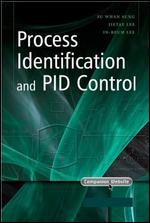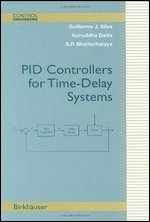
Author(s): Su Whan Sung, Jietae Lee, and In-Beum Lee
Publisher: Wiley-IEEE Press
Date: 2009 Format: PDF Language: English ISBN10: 0470824107
Pages: 1 OCR: Quality: Good ISBN13:
Process Identification and PID Control enables students and researchers to understand the basic concepts of feedback control, process identification, autotuning as well as design and implement feedback controllers, especially, PID controllers. The first The first two parts introduce the basics of process control and dynamics, analysis tools (Bode plot, Nyquist plot) to characterize the dynamics of the process, PID controllers and tuning, advanced control strategies which have been widely used in industry. Also, simple simulation techniques required for practical controller designs and research on process identification and autotuning are also included.
Part 3 provides useful process identification methods in real industry. It includes several important identification algorithms to obtain frequency models or continuous-time/discrete-time transfer function models from the measured process input and output data sets. Part 4 introduces various relay feedback methods to activate the process effectively for process identification and controller autotuning. •Combines the basics with recent research, helping novice to understand advanced topics •Brings several industrially important topics together: •Dynamics •Process identification •Controller tuning methods •Written by a team of recognized experts in the area •Includes all source codes and real-time simulated processes for self-practice •Contains problems at the end of every chapter •PowerPoint files with lecture notes available for instructor use
links http://letitbit.net/download/3169.38d3e4566225ebcdbf84d1c15/0470824107.rar.html
